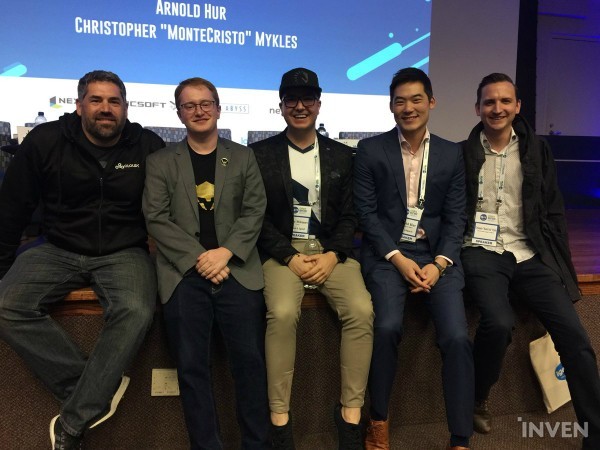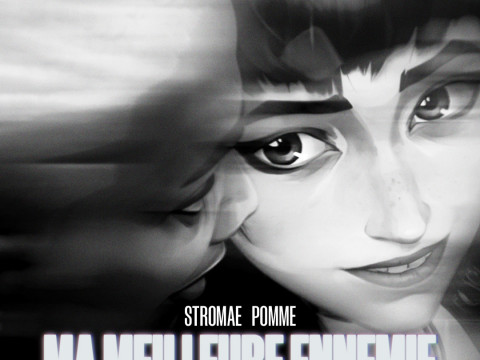
At IGEC 2018, “Owning a Professional Team: How to Turn Your Dreams into Reality” was hosted by an all-star panel of Jack Etienne of Cloud9, Noah Whinston of Immortals, Mike Milanov of Team Liquid, Arnold Hur of Gen.G (Formerly KSV), and moderated by Christopher “MonteCristo” Mykles.
It began with each host going over the history of their organizations and discussing the challenges they’ve had in common, but also the differences between management styles. They also discussed the future of esports team ownership in regards to franchising, and also how the average fan can position themselves into the industry.
Setting your team philosophy
Noah Whinston was the first to mention that with esports, your fanbase is decentralized. Unlike traditional sports where your fans are likely to be in the city they play for, esports has a global reach. Fans of Los Angeles Valiant exist beyond L.A. So to bring your fans together, your team should have one philosophy to identify with.
With Noah’s teams, the philosophy is transparency. Although he’s received criticism for it, he states he’s never had a bad experience since the fanbase is more negative if they don’t see that you’re trying.
Jack Etienne’s philosophy is personality-first, in which he wants his players to be themselves, even if some may consider it overboard at times. He himself seems to practice this, as he’s poked fun at Noah’s expense.
As a result, they have missed out on sponsorships since Cloud9 has chosen not to filter themselves. But the trade-off is worth it. Fans overwhelmingly positive reactions to Cloud9's individual players expressing themselves is an important lesson to PR worried esports orgs.
Or, as Jack puts it: “let Sneaky be Sneaky, let Mango be Mango.”

The other hand
In contrast, Mike Milanov believes in being a clean brand with a focus on professionalism and infrastructure. Because of Team Liquid’s dedication to this philosophy, they are known for being easy to work with and their long-lasting partner retention. For example, they’ve had a partnership with Alienware for 6 ½ years and with HyperX for 5 years.
While this may sounds like a purely corporate approach, Milanov acknowledged the importance of innovation and looking for new opportunities, given the nature of esports and its growth.

Arnold Hur with Gen.G gave a simple statement: “It’s not about polish but texture”. No matter how a team decides to market themselves, the fans will see the teams for how they are. And for that reason, each team’s code of conduct becomes their philosophy and what fans will ultimately find themselves attracted to.
Arnold also added another simple statement: “Food is important.” Who knows how many esports connections and partnerships have been made over Korean cuisine, but Arnold is convinced of its importance.

On franchising
In regards to the path of franchising, all four hosts believed it’s a step in the right direction.
Noah states that even though Blizzard has full control over their own IP with Overwatch League, it still helps team owners since they are providing a safe ecosystem. It becomes a long-term publisher relationship.
Per Arnold, if team management is a Facebook status, then “It’s Complicated”. But once you join a franchise such as OWL, it becomes “In a Relationship”. Even if you fight or argue, there is still a commitment from both parties to stay together.
Both Mike and Jack acknowledge the risks that were taken with OWL but encourage publishers to move in this direction and to learn from the successes of both League of Legends Championship Series (LCS) and OWL.
Landing your first esports job
“If I get another resume that starts with how much you love esports…”
All the hosts stressed the importance of having specific and clear, competent qualifications. They already know you love esports if you are applying. Instead, the importance of *Hard skills and Soft skills was stressed upon the audience.

Everyone looking for a job should have Hard Skills -- these are easy to demonstrate. However, it is becoming more important to demonstrate soft skills if your job depends on it. For example, if you say you can manage social media accounts, you will be asked how many followers you have and it will matter.
*Hard skills are specific, teachable abilities that can be defined and measured, such as typing, writing, math, reading and the ability to use software programs. By contrast, soft skills are less tangible and harder to quantify, such as etiquette, getting along with others, listening and engaging in small talk.
The panel urged hopefuls to show off their competitive advantage when it comes to creativity. Since esports is rapidly growing industry, new positions show up all the time. Job seekers who put themselves in positions where they say “yes” even if you don’t know how will often find success. This way, they commit themselves to learn how to perform a job that likely has no precedent or history.

Noah Whinston comically acknowledged that most of the job openings on the Immortals website don't really exist. But if you can make a case for why you are the right fit for a job that doesn’t even exist yet, they’re open to it.
So to anyone reading who may want a job in the industry -- your perfect position likely doesn't exist yet. Perhaps you can create it today.







Sort by:
Comments :0